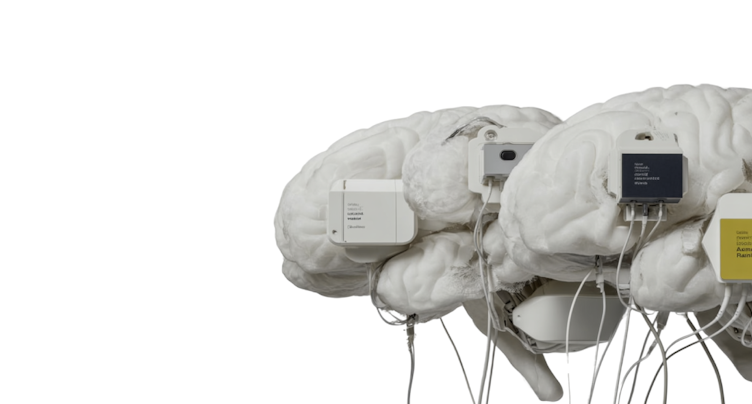share this post on


20 August, 2024
With patients having more healthcare options than ever, providers must focus on increasing patient satisfaction through effective communication, compassionate care, and innovative technologies like artificial intelligence or AI. Patients want the whole package, especially when paying the bill.
Luckily, a high score in patient satisfaction is a win-win for both parties, from business potential for providers to long-term well-being for patients. And the key to scoring high can be utilizing AI that can make workflows more efficient, while saving time and costs, creating space for more human interactions.
In this article, we discuss 3 ways AI can help increase patient satisfaction.
What is patient satisfaction?
Patient satisfaction is how patients view the quality of care at a healthcare provider, their assessment of the services they received, and whether those met their expectations. But it’s more than about providing top-notch clinical care.
Patient satisfaction is also defined by the effectiveness of communication between patients and staff, with patients looking for sympathy, dedication, and respect, and not rushed-out, hard-to-understand, medical words. They need to know they’re not just a box to check. They want to feel valued, safe, and cared for — and that goes beyond the cleanliness of the space and state-of-the-art practices.
Why is patient satisfaction important?
Patient satisfaction is important for a healthcare provider because it can mean the difference between patient loyalty and loss of trust, earning recommendations or negative reviews, and revenue growth versus unfortunate costs of legal implications.
It’s a key performance indicator that can influence many areas on both the provider’s and the patient’s side. One of them is patient retention. For the provider, it’s always less expensive to keep existing patients than to find new ones. For the patient, the happier they are, the more willing they will come back for follow-up appointments which can also improve their health in the long run.
Another factor affecting patient satisfaction is the amount of reimbursements the provider can receive. In the US, under The Hospital Value-Based Purchasing (VBP) Program, providers are rewarded for the quality of care they provide. With better performance, they receive bigger amounts which can be reinvested into further improvements towards patient experience and satisfaction. Another win-win.
How does digitalization help with patient satisfaction?
Digitalization can have the most impact on increasing patient satisfaction, focusing on the following areas:
- The quality of care, resulting in better patient outcomes, e.g. increasing safety, reducing risks, allowing personalized diagnosis and treatments, applying predictive analytics, increasing data security
- The efficiency of the healthcare delivery process, e.g. reducing waiting times, offering telemedicine, providing self-health-management
- The perception of healthcare, e.g. the friendliness of staff, the comfort of care, the easiness of accessibility
In all of these areas of innovation, digital products play a crucial role and the application of advanced technology like deep learning and generative AI offers endless opportunities for increasing patient satisfaction.
How can you increase patient satisfaction using AI?
Leveraging AI can be a good approach to increase patient satisfaction because while it excels at tasks like data analysis and automation, healthcare providers can focus on what they do best and what is needed from them beyond their knowledge: building relationships with patients and delivering personalized care.
AI offers medical help to patients anytime, anywhere
Unlike medical professionals, digital tools equipped with AI are accessible anytime, anywhere.
Waiting times and the speed at which a patient can get support, whether they’re asking for medical information, advice, or simply for direction on where they can find medical help, highly impact patient satisfaction.
When medical professionals and assistants are not available to provide information, AI chatbots and virtual assistants offer a remote healthcare option. These technologies not only answer patients’ basic questions but can do it in a more customized way, and add a more personalized touch than traditional methods.
When patients receive targeted information about their conditions, medications, and treatment options, it empowers them and fosters a sense of control over their health.
|
Remote well-being platform, with symptom-tracking Vi, a comprehensive well-being platform, developed by Supercharge, allows women to receive tailored support from menopause therapists who are readily available to assist individuals in navigating the related physical, mental, and social challenges. Vi also offers an advanced symptom-tracking module, data-driven insights, and personalised educational resources. Learn more about the Vi platform here. |
AI brings personalized, proactive care to patients
Personalized care is about using preventive care and customizing medical treatment to an individual’s needs.
AI-driven healthcare systems can analyze large quantities of information and continuously monitor data changes, which pays off in two ways. It can help patients stick to their own treatment plans by reminding them about the next steps with targeted outreach and reminders, promoting better health management. And, it can identify individuals at risk for complications and signal the need for medical intervention.
Essentially, a patient who is well-informed and is informed in time is a patient who stays healthy for longer and is more satisfied with their provider, too — a well-implemented AI system can help reach both.
|
Digital cure on a schedule Supercharge worked with Egis, one of the leading generic pharmaceutical companies in Central Eastern Europe, to create a cutting-edge habit-building mobile application to increase adherence to treatment plans recommended by one's healthcare professional. By harnessing the power of behavioral science we developed a virtual assistant for fighting hypertension. Learn more about the Habita app. |
AI benefits patients by helping healthcare providers
AI is a tool, not a replacement for human interaction.
In fact, the best approach to leverage AI in healthcare is to use it for data-centered and analytical tasks or workflows that simply burden the medical staff, like administration — freeing up their time like this allows them to focus on patient interactions and provide quality care, improving their overall efficiency, and yes, increasing patient satisfaction.
As AI reduces the load on the healthcare system, patient satisfaction increases, which in turn improves the experience of everybody who is part of the system, creating an overall “healthier system”.
Increase patient satisfaction by strategic AI initiatives
Patient satisfaction is a complex concept, and there isn’t a single answer to when someone is definitively “satisfied" with healthcare. Because it all depends on how patients perceive the quality of care and services, based on what value it brings to them, and what their expectations were in the first place. Someone with a chronic condition might have different expectations from someone seeking a one-time treatment.
Based on our current knowledge, by implementing AI strategically, healthcare providers can create a more accessible, responsive, and patient-centered experience, ultimately leading to higher satisfaction.
As we at Supercharge have been exploring the capabilities of AI in healthcare for many years now, we do not doubt that AI has much potential to boost patient experience and enable high patient satisfaction, and we’re excited to see its capabilities be utilized to a full extent.
Ready to start your innovation journey? Let's get in touch!
The form is loading...



